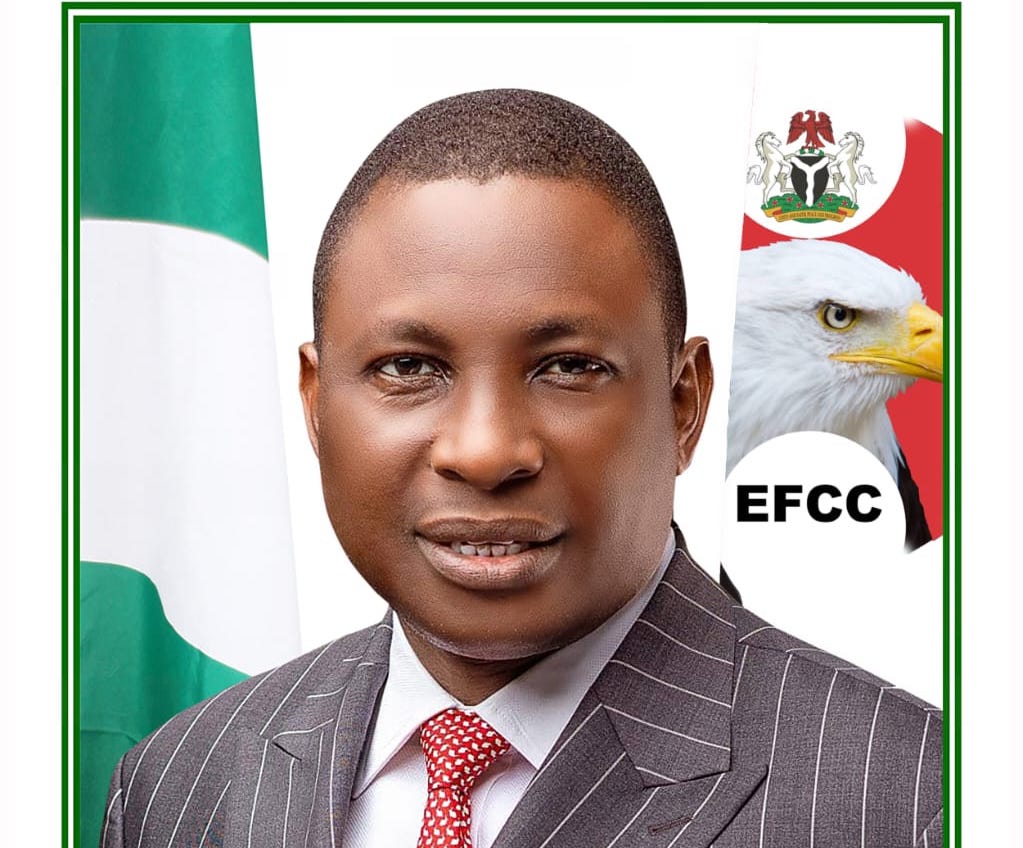The Chairman of the Economic and Financial Crimes Commission (EFCC), Mr. Ola Olukoyede, has accused some unnamed public servants serving in various ministries, departments, and agencies (MDAs) of moving unspent budget allocations to private accounts in commercial banks.
According to Olukoyede, the funds are always wired to the banks before midnight at the end of every budget cycle.
He decried the magnitude of theft by corrupt elements in the country, especially the stealing of unspent allocations in government agencies, identifying public corruption as the bane of development in Nigeria.
He made this disclosure in Abuja on Tuesday, July 2, 2024, while receiving the management team of the Revenue Mobilisation Allocation and Fiscal Commission (RMAFC), led by its Chairman, Mohammed Bello Shehu, who came on a courtesy visit to the Commission.
The anti-graft Czar stated: “When I look at some case files and see the humongous amount of money stolen, I wonder how we are still surviving. If you see some case files you will weep. The way they move unspent budget allocation to private accounts in commercial banks before midnight at the end of a budget cycle, you will wonder what kind of spirit drives us as Nigerians.”
Olukoyede stressed public corruption ranks as the biggest cause of corruption in Nigeria.
He pointed out that if public corruption were eradicated, the country would fare better than many countries in the world.
“A situation where somebody would hold a public office or position of trust for years and you call him to account and he says no, he would not account, is not acceptable.”
He stressed that transparency and accountability should be embedded in both the public and private sectors for the optimal development of the country.
While noting that corruption posed a huge challenge to the country, Olukoyede expressed optimism that the prevention mechanisms of his leadership would ensure that the Commission stays ahead of the devices of the corrupt to ensure that Nigerians have good governance experiences.
He insisted that the preventive framework of tackling corruption offers more prospects of results and impact, revealing that the EFCC now has a Department of Fraud Risk and Assessment and Control.
The EFCC boss also described corruption in the country as systemic and entrenched, pointing out that the nation would fare better with improved systems of doing things.
“Let’s look at our system of revenue generation. It is a system that allows leakages in mobilisation and appropriation of funds. If we don’t look at the system, we will continue to chase shadows. In this direction, we are not just going to investigate and recover; what we have decided to do in the EFCC is Policy Review. If we can block some of these leakages and have a 50 per cent of capital project execution in Nigeria, the country would be fine,” he said.
While assuring RMAFC of enhanced EFCC collaboration, Olukoyede tasked the delegation to continue to support President Bola Tinubu’s efforts geared towards repositioning the country.
“The President relies on you and me and all the people he has put in positions of trust and responsibility for success,” he said.
Earlier in his address, Shehu lauded the longstanding collaboration between RMAFC and the EFCC and stated that the visit was motivated by the need to explore more areas of collaboration between the two agencies of government, especially in the direction of recovery of unremitted or lost revenues of government.
“It is important to bring to the fore that the collaboration between RMAFC and EFCC is crucial in addressing the challenges of unremitted revenue to the Federation Account. On this note, we are calling on EFCC for more collaboration, not only in the area of enforcement but also intelligence gathering and data sharing as regards government revenue from any source.”
He also called on the EFCC to further assist his Commission in the area of capacity building of its staff on revenue monitoring.













